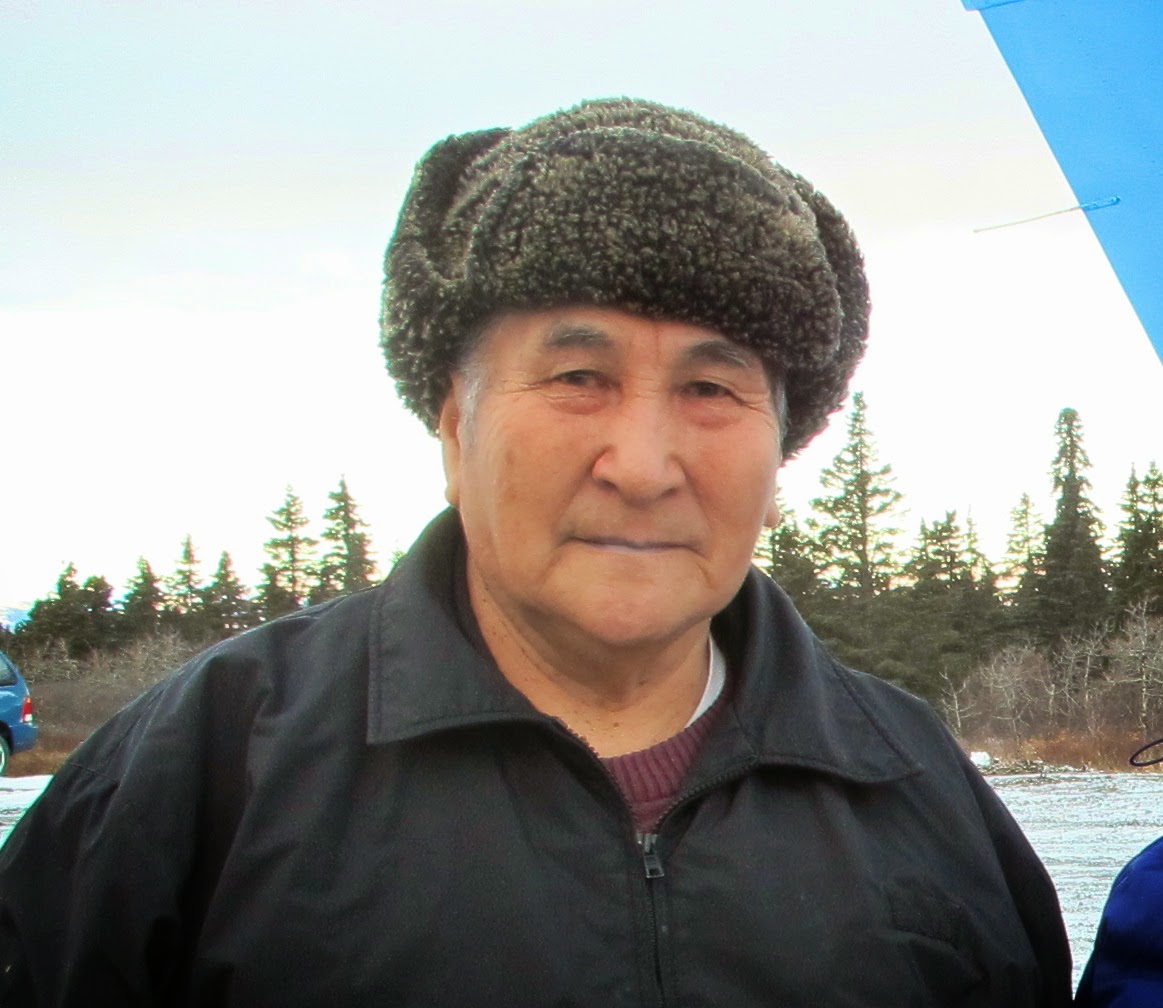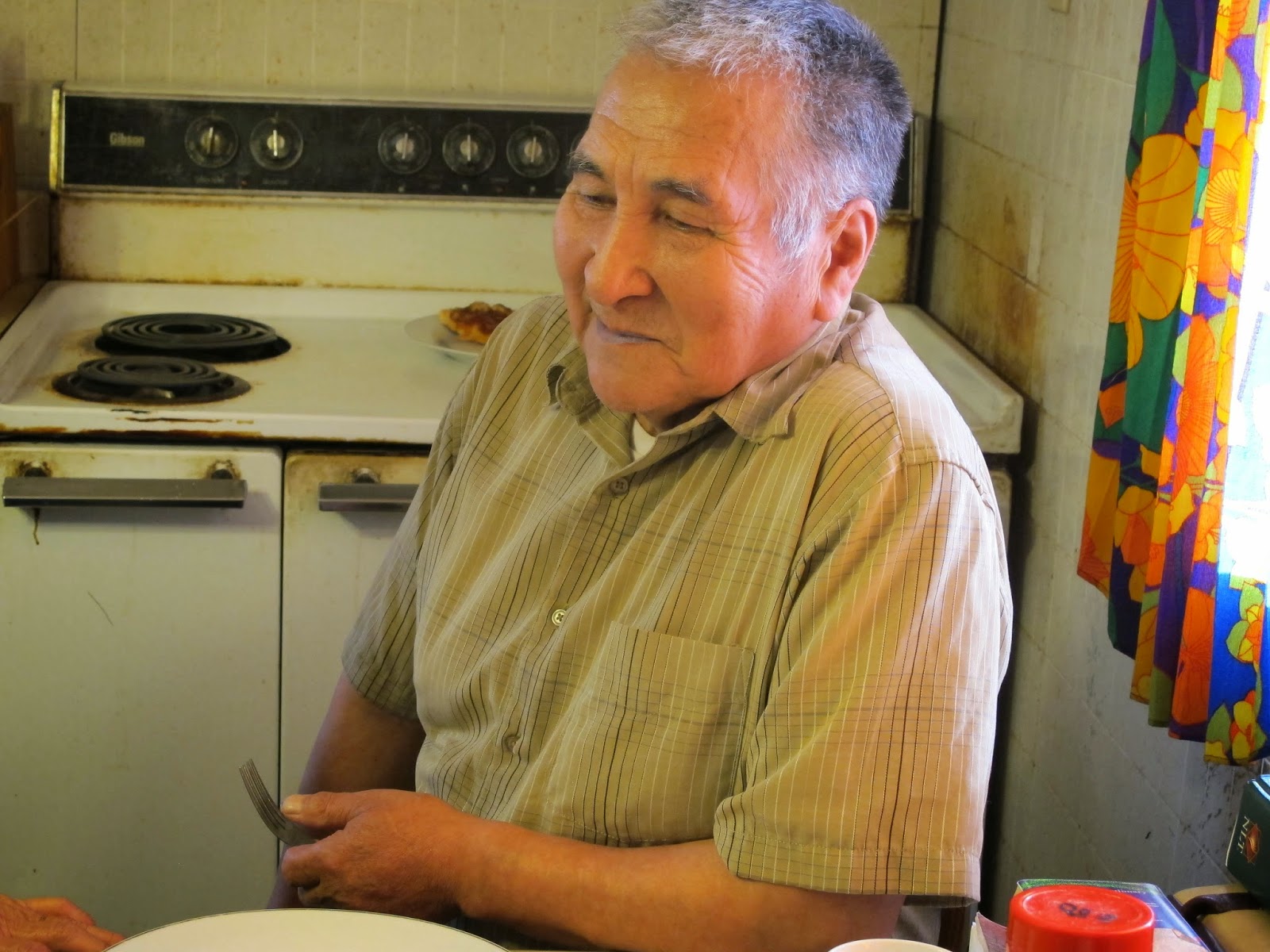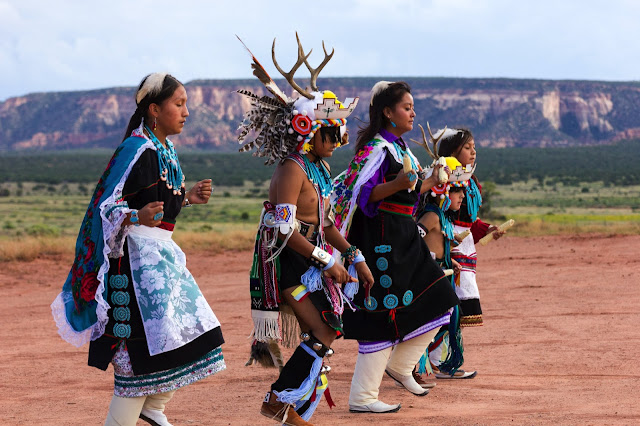On a Roll: Alaska Native Voters Win Another Civil-Rights Battle
 This article appeared on Indian Country Media Network in 2014. For more on topics like this, see my book, American Apartheid: The Native American Struggle....
This article appeared on Indian Country Media Network in 2014. For more on topics like this, see my book, American Apartheid: The Native American Struggle.... A federal court in Anchorage has sided
with Alaska Natives who demanded that Alaska provide language assistance to
non-English-proficient voters. According to United States District
Court Judge Sharon Gleason, who presided over the trial for the landmark voting-rights
lawsuit Toyukak v. Treadwell, Alaska
violated Section 2 of the Voting Rights Act by failing to adequately translate election
materials for Gwich’in and Yup’ik speakers. In a September 3 hearing, Judge
Gleason criticized the state for relying on poorly paid, poorly informed “outreach
workers” to provide interpretation on a catch-as-catch-can basis.
Lead plaintiff was Mike Toyukak, shown here in his home village, Manokotak, Alaska, and in his home there. Other plaintiffs were Frank Lagusak,
Sr., representative of the Traditional Village of Togiak, also a plaintiff in
the case, Fred Augustine of
Alakanuk, the Native Village of Hooper Bay, the Arctic Village Council, and the
Village of Venetie Council.
“Juk drin Diiginjik K'yaa geereekhyaa
geenjit gaayii gwiriltsaii. Shoo tr'aadlit ts'a' hai' tr'oonyaa,” said Allan
Hayton, of plaintiff Arctic Village Council, in Gwich’in. “Today
we have won a victory for speaking our language. We are happy and thankful.”
Responding to the ruling,
Alaska’s lieutenant governor and chief elections official Mead Treadwell
announced that the state will upgrade language-assistance efforts. It will provide
the court with its plan to do so within a few days. Alaska Federation of Natives president Julie Kitka, who is Chugach Eskimo, commented,
“The law is the law. We hope this signals a new chapter for Alaska’s elections.”
The state’s language-assistance blunders were
continual and serious, according to Toyukak v.
Treadwell court records.
A ballot measure about parental consent for minors’ abortions was translated as
pertaining to parental permission “to become pregnant.” “Absentee voting” was rendered
as “voting for a long time.” About one mistranslation, an official emailed,
“What the heck, it’s a similar word and hope that it goes right over their heads!☺.”
 The judge’s decision
on remaining constitutional claims, relating to Fourteenth and Fifteenth Amendment
equal-rights protections, is forthcoming, said plaintiffs’ attorney James
Tucker, of Wilson Elser, in Las Vegas. Alaska has a history of discrimination.
Until the 2013 Supreme Court decision in Shelby
v. Holder, which sent Section 5 of the Voting Rights Act back to Congress,
the entire state was under Department of Justice scrutiny for election matters.
Just three-and-one-half years ago, the state settled another Native-language
suit, Nick v. Bethel. The
discrimination has contributed to low turnout among Native voters, according to
Tucker.
The judge’s decision
on remaining constitutional claims, relating to Fourteenth and Fifteenth Amendment
equal-rights protections, is forthcoming, said plaintiffs’ attorney James
Tucker, of Wilson Elser, in Las Vegas. Alaska has a history of discrimination.
Until the 2013 Supreme Court decision in Shelby
v. Holder, which sent Section 5 of the Voting Rights Act back to Congress,
the entire state was under Department of Justice scrutiny for election matters.
Just three-and-one-half years ago, the state settled another Native-language
suit, Nick v. Bethel. The
discrimination has contributed to low turnout among Native voters, according to
Tucker.
Plaintiffs’ counsel Natalie
Landreth, of Native American Rights Fund, noted that Alaska’s English-speaking
voters receive 100-page official election pamphlets with advance explanations
of candidates, ballot measures and the like. Meanwhile Native-language speakers
have received minimal data, such as election dates and places, forcing them to postpone
important decisions until they had a ballot in hand. “That is a violation of
the law, and it has to change, now,” said Landreth, a member of the Chickasaw Nation of Oklahoma.
At the polls, Native-language speakers typically
received minimal help in making their decisions, court records show. The state used
just one Yup’ik dialect for translations into that language, even though
speakers of other dialects don’t necessarily understand it. The state didn’t necessarily
confirm translators’ skills; if they couldn’t interpret a voting-related term,
they used English, even though they knew non-English-speaking voters wouldn’t
understand.
The Toyukak
decision follows closely another major win for Alaska Native voters. In
July, AFN and ANCSA Regional Association obtained equal access to in-person
absentee voting for the first time in many Native villages across the state,
according to AFN general counsel Nicole Borromeo,
who is Athabascan from McGrath Native Village.
The
Traditional Village of Togiak, a Toyukak plaintiff, foresaw improvements: “Quyana
cakneq, caliilerpekun kaiyurluta, wankuta yuggtun naaqituulini. Cucuukicetaat
nutaan assinruciiqut! [Thank you very much for your work helping us, those of
us who speak Yup’ik. Voting will now be a lot better!]”
Text and photographs c. Stephanie Woodard.

